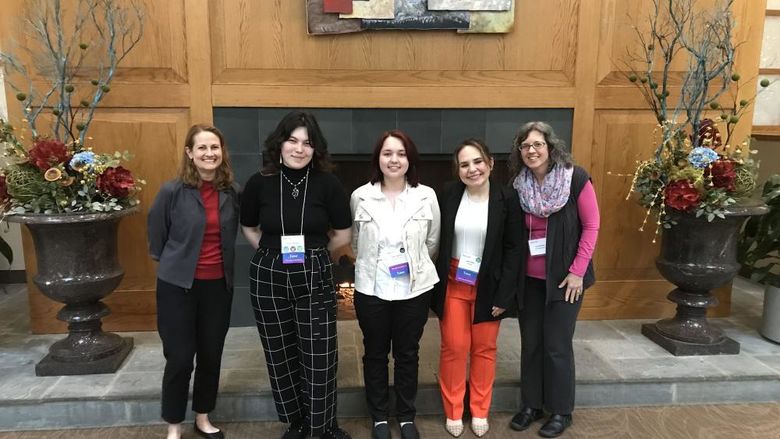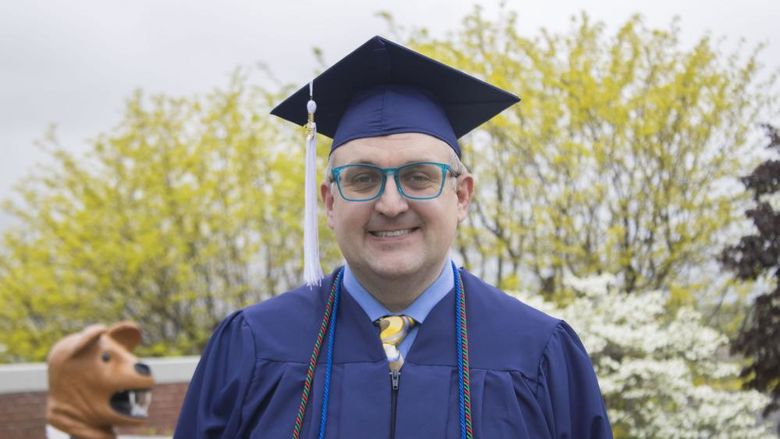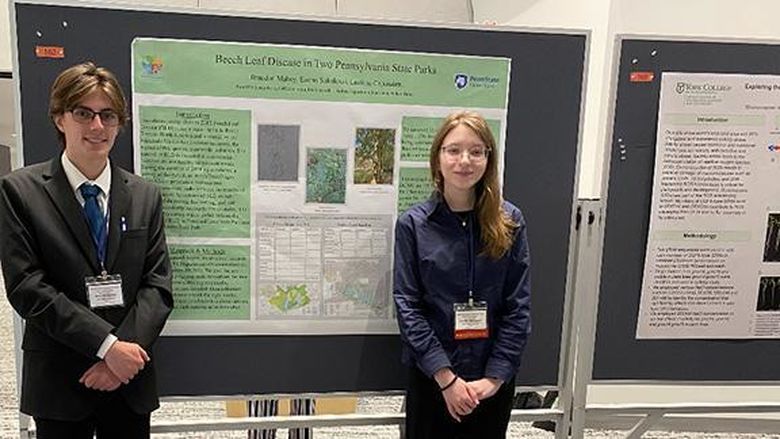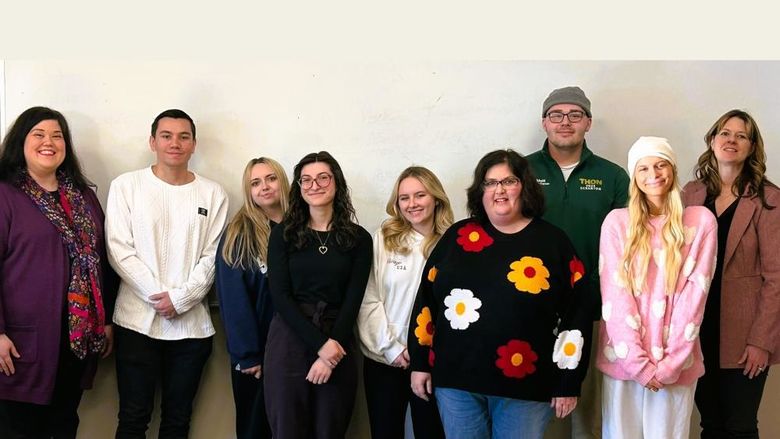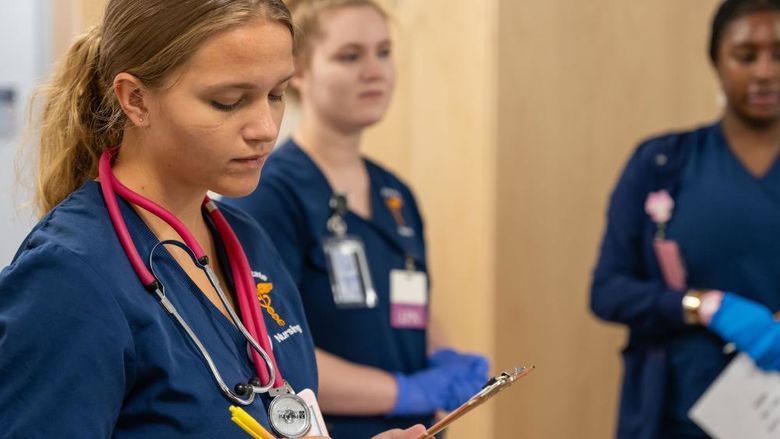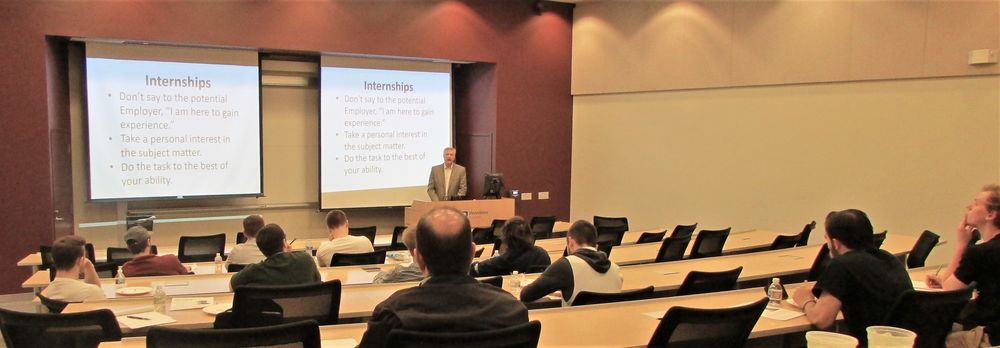
John Durdan, a Penn State Scranton alumnus, returned to campus recently to speak to engineering students in Assistant Professor of Engineering Majid Chatsaz's class about breaking into the engineering field.
DUNMORE, Pa. — Penn State Scranton alumnus John Durdan, a professional engineer at the Clarks Summit firm Highland Associates, recently returned to campus to offer engineering students tips for achieving a long-term career in the profession.
At the talk, Durdan, who received his bachelor’s degree in architectural engineering at Penn State, covered a range of topics, including internships, job applications and long-term work expectations.
Engineers, he said, are “more than just a bunch of people with pocket protectors and calculators.”
Through his career, Durdan has accumulated vast knowledge in the areas of energy planning, production and distribution. He has managed various engineering projects that have utilized his experience with critical building infrastructure systems in health care, scientific research and education.
Among other things, Durdan made a point of stressing the importance of preparing well for job interviews.
“You have an opportunity to make an impression,” he said. “Show initiative, use LinkedIn and online company directories. Be persistent and keep in touch after an interview.”
Also, he said, be mindful of personal care and conduct.
“Be careful of strong foods or smells. Don’t smoke. Use a strong handshake, be humble and be gracious. Get everyone’s names at the interviews and follow up with thank you letters,” he said.
Durdan encouraged students to seek a professional license, which he called “a career maker,” and reviewed the license requirements to become a professional engineer. In a slide show, he gave a brief timeline of expectations during the first years of employment. They included graduating from an ABET (Accreditation Board for Engineering and Technology) approved post-secondary school, and passing the EIT (Engineer In Training) program.
Durdan explained that it typically takes one to two years before engineers can even be considered employable. Five years in, they’re competent, and after a decade they reach proficiency. Senior engineer status, he said, takes roughly 15 to 20 years to achieve.
With that, he reminded the students to keep pursuing their engineering goals while keeping in mind that every engineer requires significant project experience to develop their skill set. If they treat those experiences with care and tenacity, they can one day become leaders in the field, he said.
